The University of Maine at Farmington understands the importance of furthering and continuing education. That is why UMF offers various graduate degrees and certification programs beyond the first four years. UMF offers two Master of Science in Education programs and five certificates, including other additional programs. With all of these options, future educators have great opportunities to continue their professional development.
Master of Science in Education:
M.S.Ed. in Early Childhood Education- This program prepares educators to also be advocates, leaders, curriculum specialists, program administrators, and resources for young children and their families. The program emphasizes curriculum, child development, assessment, and the family and community dynamic. Through collaboration with community agencies, students are able to get a hands-on approach to building their skills. Students are mentored by faculty with extensive knowledge and abilities in the education field.
Approximately 30% of the program is delivered face-to-face, while the remaining 70% is conducted online. This 36-credit program is designed to be completed in 6 years and is comprised of both core and elective classes, which will be related to the early childhood field.
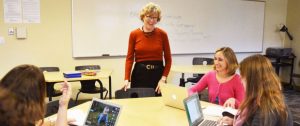
M.S.Ed. in Educational Leadership- This program contributes to the professional, intellectual, and personal growth of educators who wish to serve as exceptional leaders in their schools and communities. The program emphasizes school improvement and action research. Students in the program will complete an acton research project during the final two courses. This project focuses on classroom practice and/or school improvement. It includes planning, intervention, data collection, analysis, and the producing a professional report by presenting to faculty and peers.
This program is also 30% face-to-face and 70% online. The program is designed to be completed in two to three years. The Master of Science in Education program is approved as part of the New England Association of Schools and Colleges (NEASC) accreditation of the University of Maine at Farmington.
Certificate Programs:
Certification Programs are four-course programs comprised to graduate study courses to provide participants with a comprehensive, strong knowledge and skill base in a defined area of study.
Certificate of Administration- Designed for educators with two years experience teaching (required for admission), this program provides participants with the skills and knowledge to pursue opportunities in school administration.
Certificate in Applied Behavioral Analysis- This program prepares educators and professionals to work with challenging and difficult behaviors. Applied Behavioral Analysis is one of the best evidence-based practices for working with children on the Autism spectrum. If you are interested in this program enroll now- it will not be offered again until the Fall 2019!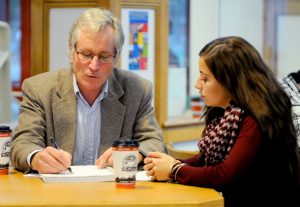
Certificate in Gifted and Talented Education- This program prepares educators to work with exceptionally gifted and talented children. All courses are offered in a blended format, combining both face-to-face and online deliveries.
Certificate in Math Leadership- This program is designed for currently practicing educators to pursue opportunities in mathematics leadership. This program opens doors to various career options, including Math Coach, RTI Coordinator, Title 1: Math Teacher, and more!
Certificate in Proficiency Based Education- This program is designed for educators who wish to grow their content knowledge and increase their pedagogy. Participants will increase their skills in curriculum design, instruction, assessment, organization, and communication in order to best teach their students.
Other Programs:
Maine Mathematics Coaching Project (MMCP)- In July of 2015 UMF began piloting the Maine Mathematics Coaching Project. MMCP is designed to support PreK-8 teachers in transitioning to the role of mathematics coach in an elementary school setting. The three goals of the program are to (1) prepare Maine students to meet career and college mathematics demands, (2) provide teachers in the state of Maine with high quality mathematics professional development, and (3) increase interest, engagement, and self-efficacy in mathematics for students and teachers.
Special Education Alternative Route to Certification (SPARC)- This online program helps to address the need for qualified special educators in the state of Maine. This program is open to all current Special Education educators holding a baccalaureate degree, including in-service educators, those working in Birth to Age 5 intervention settings, Ed Techs, and others. Upon program completion, participants will receive their 282 certification in Special Education in the state of Maine.

With a growing demand for qualified, knowledgable, experienced, and competent educators, there are many opportunities for educators to further their education. UMF programs are flexible and designed to meet the demands of a constantly changing field. For more information about UMF graduate and certification programs, visit the UMF Graduate Studies website.









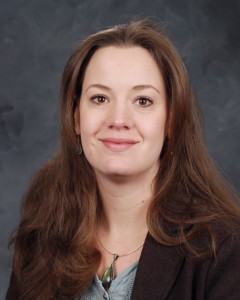 Dr. Leigh Ann Fish is coming to UMF from Troy, Ohio where she worked in public education as an elementary teacher and coordinator of gifted and talented education.
Dr. Leigh Ann Fish is coming to UMF from Troy, Ohio where she worked in public education as an elementary teacher and coordinator of gifted and talented education.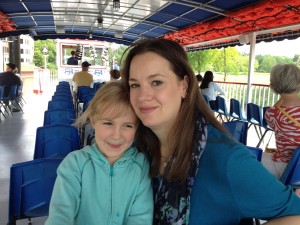 her husband and two young daughters hiking/kayaking, exploring historical sites, and trying her hand at modern-day “homesteading” on their 18th century farm.
her husband and two young daughters hiking/kayaking, exploring historical sites, and trying her hand at modern-day “homesteading” on their 18th century farm.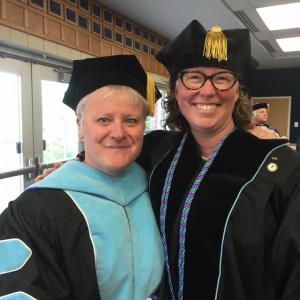
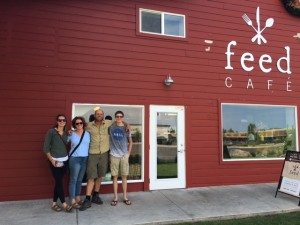
 ly-to-farm summer camps where entire families learned about the origins of their food and food preparation. I also have two children who are now 18 and 20 years old. When they were younger we spent hours (and hours) every day reading.
ly-to-farm summer camps where entire families learned about the origins of their food and food preparation. I also have two children who are now 18 and 20 years old. When they were younger we spent hours (and hours) every day reading.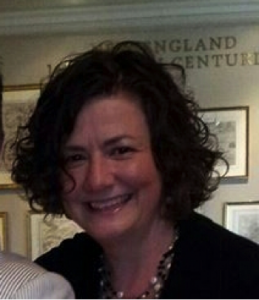 Julia Jeremias is the new Early Childhood Education Off-Campus Bachelor’s Degree Program Advisor and Coordinator. Julia comes to UMF from southern Maine where she is adjunct faculty in the early childhood department at Southern Maine Community College.
Julia Jeremias is the new Early Childhood Education Off-Campus Bachelor’s Degree Program Advisor and Coordinator. Julia comes to UMF from southern Maine where she is adjunct faculty in the early childhood department at Southern Maine Community College. After graduating from Mount Holyoke College and Lesley University, Julia started her life in education as a toddler teacher and continued in various rolls from teacher to public school administrator, until her family was transferred to Maine.
After graduating from Mount Holyoke College and Lesley University, Julia started her life in education as a toddler teacher and continued in various rolls from teacher to public school administrator, until her family was transferred to Maine.